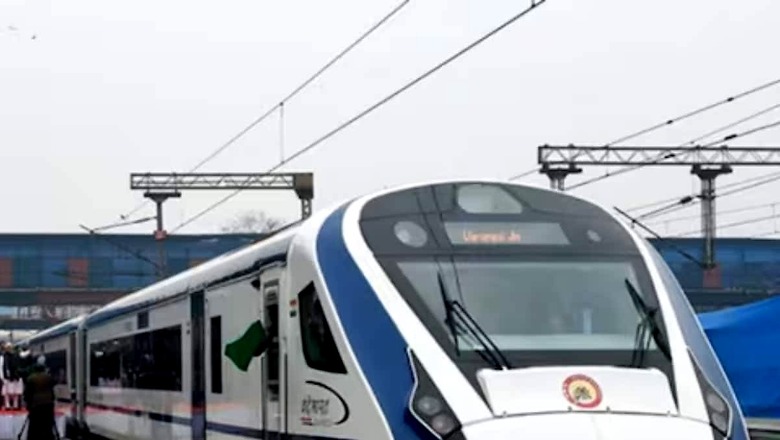
views
In a significant development, the Indian Railways has built a high-speed train testing track where trains will be able to run at speeds exceeding 200 kilometers per hour! This is a major milestone for the Railways as it aims to modernize and upgrade its infrastructure to keep up with global standards.
The 59 km long high-speed train testing track has been constructed between Gudha-Thathana Mithri in Jodhpur, Rajasthan. The track is designed to test and certify high-speed trains for safety and performance, and will be able to simulate various weather conditions and terrain features.
The Indian Railways has been making concerted efforts to upgrade its infrastructure and services, and the high-speed train testing track is another step in that direction. With this track, the Railways will be able to test and certify high-speed trains for use on the country’s tracks, and will also be able to showcase its capabilities to potential investors and partners.
Also Read: Vande Bharat Trains To Soon Be Operational On 31 Routes; What We Know
Indian Railways is making great strides towards high-speed railway technology with the construction of a dedicated test track. It is set to complete the first phase of its high-speed test track by December 2023. The test track, spanning a total of 59.5 kilometres and which is being built by the North West Railway zone, will include a 23-kilometre long mainline, a 13-kilometre long high-speed loop at Gudha, a 3-kilometre accelerated testing loop at Nawa, and a 20-kilometre curve testing loop at Mithri. The project will allow for comprehensive testing facilities of trains and rolling stock components up to a speed of 220 kmph. The track will also study rail-wheel interaction forces, crashworthiness testing, stability testing, twist and yaw testing, coefficient of flexibility test, wheel offloading test, X-factor test, bogie rotational resistance tests and accelerated testing of components. Moreover, 220 kmph Overhead Equipment (OHE) and all types of signaling systems are being provided on the test track. The project aims to be completed in its entirety by December 2024.
Besides these, Indian Railways is finalizing a tender for the manufacture of 100 aluminum Vande Bharat train sets. Technical bids for the Rs 30,000 crore project were submitted by two railway majors, namely Alstom from France, Medha from India, and Swiss company Stadler. The significance of testing trains at 220 kmph lies in the fact that aluminum trains are lighter and can achieve speeds exceeding 200 kmph. Sudhanshu Mani, the innovator behind the Vande Bharat train, lauded the project’s efforts in constructing a high-speed test track. However, he emphasized the need to upgrade key routes, such as Delhi-Mumbai and Delhi-Howrah, to 160 kmph before reaching 200 kmph. Mani states that it requires investment in improving infrastructure, track formation, and signaling.
The new testing track is expected to boost the Railways’ efforts to modernize and improve its services, and will help it compete with other countries that have already developed high-speed train networks. With trains now able to run at speeds exceeding 200 kilometers per hour, the Railways is poised to usher in a new era of high-speed travel in India.
This is a major achievement for the Indian Railways, and one that will have a significant impact on the country’s transportation sector. The Railways has been working tirelessly to modernize its infrastructure and services, and the high-speed train testing track is a testament to its commitment to excellence.
Read all the Latest Auto News here

















Comments
0 comment